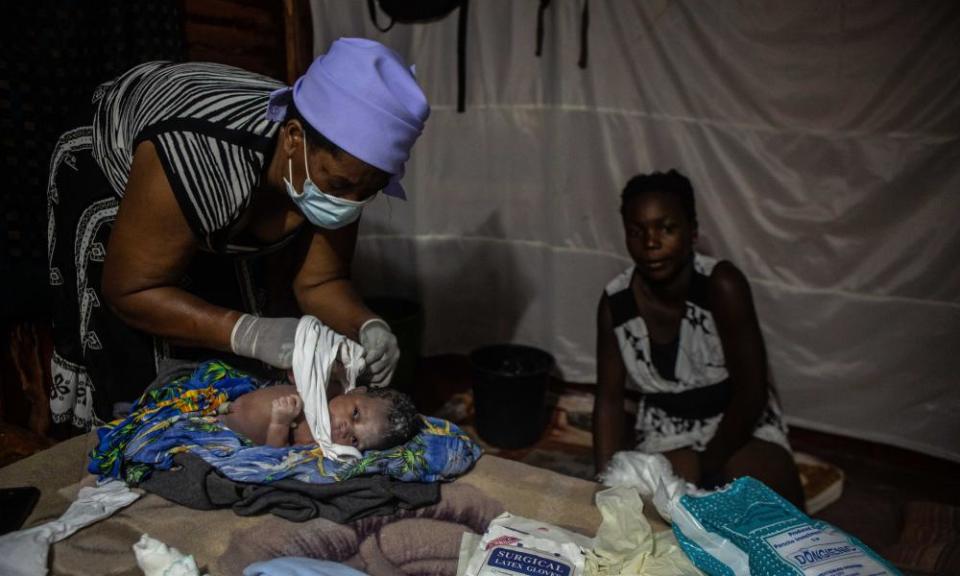UK must cancel poor countries' debt or face Covid-19 'financial tsunami'

Billions of dollars of debt owed by poor countries must be permanently cancelled in order to stave off a “looming financial tsunami” caused by Covid-19 and the ensuing global recession, a cross-party committee of MPs has warned.
Debt relief will not be enough to help the world’s most vulnerable economies as they face skyrocketing levels of hunger and unemployment, according to an inquiry into Covid-19’s secondary impacts in developing countries, published on Tuesday by the House of Commons international development committee (IDC).
The publication coincides with the first appearance of the foreign secretary Dominic Rabb before the committee.
Despite being granted roughly $5bn (£3.6bn) in debt suspension last year, more than 70 countries are still struggling to pay off $33bn under threat of being sued in UK courts if they default on their loans, the committee found.
Related: ‘People are suffering’: G20 to call on private lenders to suspend debt repayments
The UK government’s decision to slash overseas aid from 0.7% to 0.5% of gross national income – which charities predicted could trigger huge numbers of deaths – has compounded the crisis by causing uncertainty for aid programmes across the globe, the IDC said.
“Vulnerable communities have been fighting humanitarian injustices for too long – from poor healthcare to gender inequality, malnutrition to dire financial woes – and these have all been getting worse due to the pandemic,” said IDC chair Sarah Champion.
“We must expose this shadow pandemic and recognise that long after coronavirus, the secondary impacts could be worse. The government needs to show leadership on this and commit to shore up our decades of investment in development,” she said.
Beyond ever-rising levels of national debt, routine healthcare in some countries has ground to a halt, and people fear starvation and unemployment more than they do the pandemic. Covid-19, and its countermeasures, have increased rates of gender-based violence and child marriage, the inquiry found.
While the IDC commended the UK’s role in extending the G20’s debt service suspension to 30 June, which allows the poorest countries to delay their government-to-government debt repayments, the group called on ministers to “consider options for the cancellation of debt”, and to persuade private lenders to join the G20 scheme.
Some of the world’s biggest banks and asset management companies, among them HSBC and BlackRock, hold trillions of dollars in debts, yet to date have not offered any form of debt relief or cancellation. As English law governs 90% of the international sovereign bonds owed by countries eligible for the debt service suspension, the UK is in a unique position to send a message on debt cancellation, the IDC said.
Melanie Ward, executive director of the International Rescue Committee, said: “The UK has a proud record of humanitarian leadership. If ‘Global Britain’ is to be more than a soundbite, then it is vital that the foreign secretary pledges to act on the findings of this report.”
In its response to the IDC report, the government said it had committed up to £1.3bn of new aid to counter the impact of Covid-19, and to support the global effort to find and distribute a vaccine equitably. The Foreign, Commonwealth and Development Office has adapted more than 300 programmes to respond to the pandemic and has worked with the Institute for Fiscal Studies and the Bank of England to provide technical assistance to countries on their Covid-19 response.

 Yahoo News
Yahoo News 